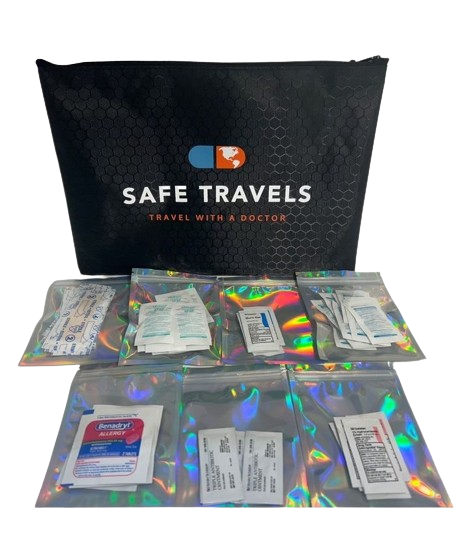

Being prepared for a health incident (whether it be a simple illness or a bigger emergency) before it arises is crucial to helping your college student get the care they need. Before sending them off to college, provide them with the knowledge and tools they need to access the healthcare system and be responsible for their own health.
A lot of “firsts” happen in college for teens. This often includes the first time they go to a doctor without a parent or guardian and are ultimately responsible for their own health care. Below are tips to send them off prepared to advocate for themselves and navigate the medical world on their own:
1. Make sure they have all their important health information in a safe and easy to find place, both accessible on their phones and a hard copy. These include:
a. Insurance card – both a hard copy and photos of the front and back of the card.
b. Summary of any major medical history in their past or current.
c. Surgical history.
d. List of current. medications and dosages.
e. List of allergies – medications, foods and environmental.
f. Emergency contacts.
g. Vaccination history.
h. Primary care doctor – name and phone number.
2. Explain HIPAA to your student. If the student is over 18, doctors cannot share information with parents unless specified by the student. Make sure they are aware of this
and designate with whom the providers can speak.
3. If your student has a serious and potentially life-threatening condition, have them wear a medical identification bracelet. This is especially helpful to first responders should the need arise.
4. Identify local urgent cares and emergency rooms that your student can use if needed. Some insurances do not participate with all providers, so it is advised to figure this out ahead of time before a situation arises.
5. Send your student with basic medications and supplies for their room and make sure they understand how and when to use these.
6. Discuss with your student the most effective way to advocate for themselves and how to
convey their symptoms. This includes:
a. Writing down symptoms and the timeline of their condition ahead of time so they don’t forget while speaking the doctor.
b. Prepare questions they have for the doctor, and don’t be shy about asking.
c. Encourage your student to feel empowered to question the doctor’s decision making and stand up for themselves if they don’t believe they are being treated appropriately.
About the author – Dr. Deborah Mogelof is a physician with over 15 years of experience in emergency medicine and urgent care. She recently started Safe Travels, PLLC which provides both concierge medical care while patients are away from home and travel medicine kits. Both services are ideal for college students. The concierge service is available for those who make initial contact with the doctor (either in person or via telehealth) in Connecticut. Kits and services are available online at www.safetravelsmed.com. Follow on Instagram @safetravelsmed.



